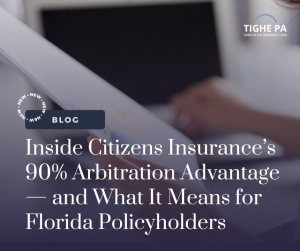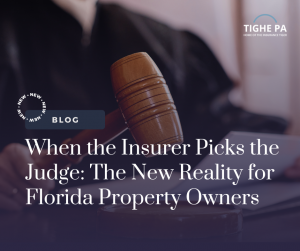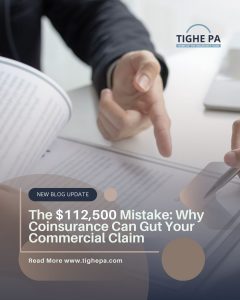As a Commercial Property Manager in Florida, safeguarding the commercial properties you manage against the destructive impact of severe weather conditions is a top priority. The integrity of your roof plays a crucial role in protecting your commercial property and ensuring the safety of tenants and their assets. This article aims to provide you, as a property manager, with key insights into commercial roofing insurance coverage for storm damage. By understanding policy provisions, coverage limitations, deductibles, and other vital considerations, you can navigate the insurance claims process more effectively, minimize financial risks, and ensure a swift recovery from hurricanes, tornadoes, or hail storms.
Understanding Policy Provisions
When it comes to commercial insurance policy provisions, it’s imperative to familiarize yourself with the specific terms and conditions related to roof damage coverage. Insurance policies can vary significantly, so carefully reviewing the details is essential. There are 2 aspects of an insurance policy which are very important to making sure that you will be able to seek an appropriate settlement in the event that one of the roof’s of the property is damaged.
- Covered Perils: Policies can offer either named perils coverage or broader all-risk coverage. Named perils coverage specifies the specific risks covered, such as hurricanes, windstorms, or hail. All-risk coverage, on the other hand, provides coverage for any risks except those specifically excluded in the policy. Understanding the scope of coverage helps you assess potential vulnerabilities and determine whether additional coverage is necessary. For the most comprehensive coverage, your property should be protected from all risks, both named and unnamed perils, to prevent a denial of your claim.
- Building Valuation: Familiarize yourself with the policy’s valuation method for your commercial property. Policies may utilize either actual cash value (ACV) or replacement cost value (RCV). ACV takes into account depreciation, meaning you will receive a payout that factors in the age and condition of the roof at the time of the loss. RCV, on the other hand, provides coverage for the full cost of replacing the damaged roof, regardless of depreciation. Knowing which valuation method applies allows you to accurately estimate potential payouts and plan accordingly. We typically recommend that insured’s should seek RCV policies because these policies provide more substantive payouts and allow any repairs to be completed with minimum out of pocket spending.
Coverage Limitations and Deductibles
Insurance coverage for commercial roof damage often comes with limitations and deductibles that can impact the claims process and your financial responsibilities.
- Coverage Limitations: Review your policy to understand any limitations on coverage, such as maximum coverage amounts for roof repairs or replacements. Evaluating these limitations helps you gauge whether the coverage aligns with potential costs and consider the need for additional coverage or endorsements to fill any gaps.
- Deductibles: Deductibles represent the portion of the loss you must bear before the insurance coverage kicks in. Consider the deductible amount and its impact on potential claims. Higher deductibles can result in greater out-of-pocket expenses before insurance contributions apply. Assessing your financial capacity to cover deductibles is crucial when determining the feasibility of filing a claim.
Tips for Property Managers – How to Improve Your Odds of Receiving a Fair Settlement
Not all insurance claims are submitted equally. At its most basic, submitting a claim is an official way to say to your insurer, “Our property was damaged, we need your help to recover.” You inform them of the claim, and let them figure things out while you sit on your hands and wait. However, this is not the best way to submit a claim. Claims submitted with accompanying documentation, estimates from mitigation professionals, and other documentation will help to strengthen your claim and provide a higher chance of getting a full and fair settlement. To optimize your insurance claim process and protect your commercial property effectively, here are some key considerations:
- Regular Inspections and Maintenance: Implement a routine inspection and maintenance program for your commercial roof. Conducting regular inspections and promptly addressing maintenance needs can help identify potential issues before they escalate into significant problems. Insurance companies appreciate proactive property management practices, and it can strengthen your claim in case of storm-related damage. We recommend that commercial property managers ask their contractor or roofing company to inspect the condition of all roof’s on the property immediately before the start of hurricane season, or before any storm damage happens. This way, should any roof damage occur, you will have video or photographic evidence showing the roof in good condition prior to the storm.
- Documentation and Record-Keeping: Maintain thorough documentation of your property’s condition, including roof inspections, maintenance records, and any pre-existing damage. Detailed records serve as valuable evidence during the claims process and help establish the cause and extent of the storm-related damage. Documenting the timing and effectiveness of any repairs or mitigation measures is also essential. Make sure to keep all documentation related to the installation or repair of any roofing element on the property. This could come in handy later as sometimes insurers will try to deny claims citing poor or improper workmanship of previous repairs.
- Engage Professional Expertise: Collaborate with experienced roofing contractors, public adjusters, and legal professionals specializing in property damage claims. They can assess the damage accurately, provide expert estimates for repair or replacement costs, and advocate on your behalf during the claims process. Their involvement enhances your claim’s credibility and ensures fair evaluation by the insurance company. Never take for granted anything that is told to you by professionals who are employed by your insurance company without consulting your own expert.
- Mitigation and Temporary Repairs: After a storm event, take immediate measures to mitigate further damage to your commercial roof. Promptly tarping damaged areas and initiating temporary repairs demonstrate your commitment to protecting your property and minimizing losses. In addition to demonstrating your commitment to protecting the property, your policy likely has provisions which REQUIRE you to mitigate the damage to prevent further damage from occurring. Document all mitigation efforts and associated expenses, and save all of your receipts, as they may be reimbursable under your policy.
- Review Additional Coverages: Consider additional coverages or endorsements that can enhance your insurance protection. These may include coverage for business interruption, extra expense coverage for temporary relocation, or coverage for code upgrades required during roof repairs or replacements. Assessing and adding relevant coverages can help you mitigate financial risks associated with storm damage.
- Consider Hiring a Property Damage Lawyer: As a property manager, you have a lot of things on your plate. After a storm, you will have even more work you will need to handle to help get the property back in order. In many cases, there simply is not time for you to learn the ins and outs of the insurance claim process in order to effectively advocate for the highest and best settlement you are owed under your policy. Hiring a property damage attorney can make it easier for commercial property managers by taking on all of the additional work that a property damage claim can create. It will also make it more likely that the property will get the highest possible settlement amount, as a property damage lawyer understands how to maximize the settlement on a claim for commercial property damage.
Understanding the intricacies of commercial roofing insurance coverage for storm damage is crucial for property managers in Florida. By comprehending policy provisions, coverage limitations, deductibles, and key considerations, you can proactively protect your commercial properties and navigate the insurance claims process with confidence. Regular inspections, thorough documentation, engagement of professional expertise, and implementation of mitigation measures will strengthen your claim and ensure a smoother recovery from hurricanes, tornadoes, or hail storms. By being well-informed and proactive, you can safeguard your investments, minimize financial risks, and swiftly restore your commercial properties to their pre-storm condition.
You May Also Like:
- Searching For A Florida Condominium Association Property Damage Attorney? You’re in the Right Place
- Roofing Emergency Response Plan for Commercial Properties: Ensuring Safety and Minimizing Damage
- Effective Communication with Property Insurance Companies: Tips for Property Managers
- How to Choose Roofing Restoration vs. Roof Replacement for Commercial Properties as a Property Manager


